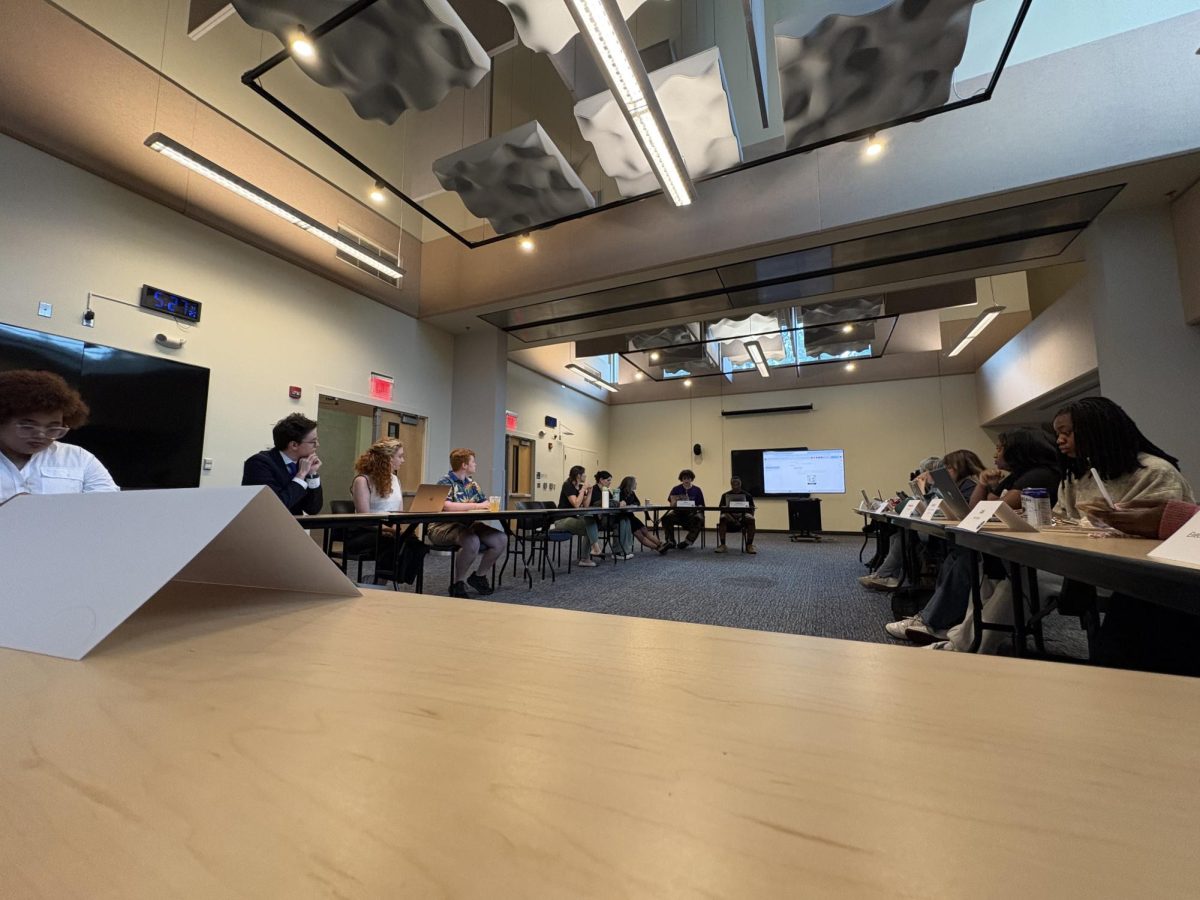By Peyton Sheehan
News Staff Writer
[email protected]
Thanksgiving break is over and now begins the panic of finals. While students are ready for a month-long break or graduating, it does not stop the pressure of eating healthy and getting enough sleep during finals.
According to Medical Daily, in 2014, researchers found 59 percent of college students had food insecurities or some concerns about accessing healthy food options.
Laura Sexton, a registered dietitian at UNC Asheville, works with students and dining services to make sure students get the food intake they need to stay healthy. As a dietitian on a college campus, Sexton often takes part in editing the menu, nutritional analysis and FDA compliance around menu labeling, as well as individual nutrition counseling.
“The primary role of the dietitian is to provide nutrition education for individuals or for the masses, to advise their colleagues and to provide expertise in their given field,” Sexton said.
It can be common for students, especially freshmen, to become overwhelmed with how many different food options exist on college campuses. Sexton also mentioned a common mistake students make when it comes to eating healthy is to go straight to the vending machine, eating junk food and fast food instead of cooking a healthy meal or eating a healthy snack.
“It’s easy to make an impulse purchase when you are tired, hungry or you are up late studying or stressed,” Sexton said.
Even college students that are personal trainers struggle with healthy eating and getting enough sleep when it comes to college stress. Megan Smith, a personal trainer at Gold’s Gym and student at A-B Tech, said she sometimes struggles with her own advice.
“I am a stress eater, so I do great during the day about making wise choices, working out, et cetera, but when I have an exam that I don’t get around to until an hour before it’s due or I have to submit something past the deadline, I get stressed and I eat,” Smith said.
According to Campus Explorer, students usually go to snacks and drinks that could actually make you do worse during finals week. Caffeinated drinks, high sugary foods, greasy and fried foods or chips can cause students to have fuzzy memory, fatigue and moodiness, which leads to more stress and anxiety. National Institutes of Health found sleep deprived students have lower GPA’s due to the fact that it impacts memory and concentration.
Sexton mentions that instead of going to a fast food restaurant or convenience store, go to a grocery store and get a salad from the salad bar or stuff to make a quick and simple stir fry.
“When someone can learn how to prepare foods for themselves, they are taking charge of their individual health while developing a life skill that is crucial for all humans, and not to mention it can be such a source of joy and accomplishment when you prepare a tasty meal,” Sexton said.
Staying up all night might become a commonality for students to do whenever they are cramming to study for a test or finish last minute projects. According to research conducted by the National Institutes of Health, taking time to sleep before an exam proves more beneficial to your grade instead of staying up for hours cramming for the exam. The NIH also found sleep deprived students have a lower GPA due to loss of memory and concentration.
Christy Messer, a local business owner of Everything Teacher and former educator recalls the struggle of worrying about exams during graduate school, but always made time to sleep before the exam.
“I remember most of my classmates would stay up all night stressing and studying, ” Messer said. “I was never one to pull an all nighter, I knew that I would be better off going to sleep and then coming back in the morning to find everyone else even more stressed.”
The stress a student encounters from finals week can cause lack of motivation to eat well or work out. The lack of sleep an individual experiences equals weight gain and even more stress due to the continuous cycle created.
In 2015, Time mentioned some tips for doing well during well during finals. Make sure to verify the details beforehand, get some sleep, staying active, eating and snacking well, avoiding social media and experimenting with different types of study methods.
“Although it’s aggravating, take the parking spot that’s farther away, take the stairs when you can, maybe even jog up them or do lunges as you walk to class,” Smith said. ”Simple movements make a big difference. Also be sure to drink plenty of water. If you can’t work out or you don’t have the option to eat healthy, drink lots of water. It helps flush out toxins, waste and fills you up so that you stay hydrated and you’ll eat less.”
Categories:
Dietitian advises avoiding stress-eating during finals
November 28, 2017
0
Tags:
More to Discover


















